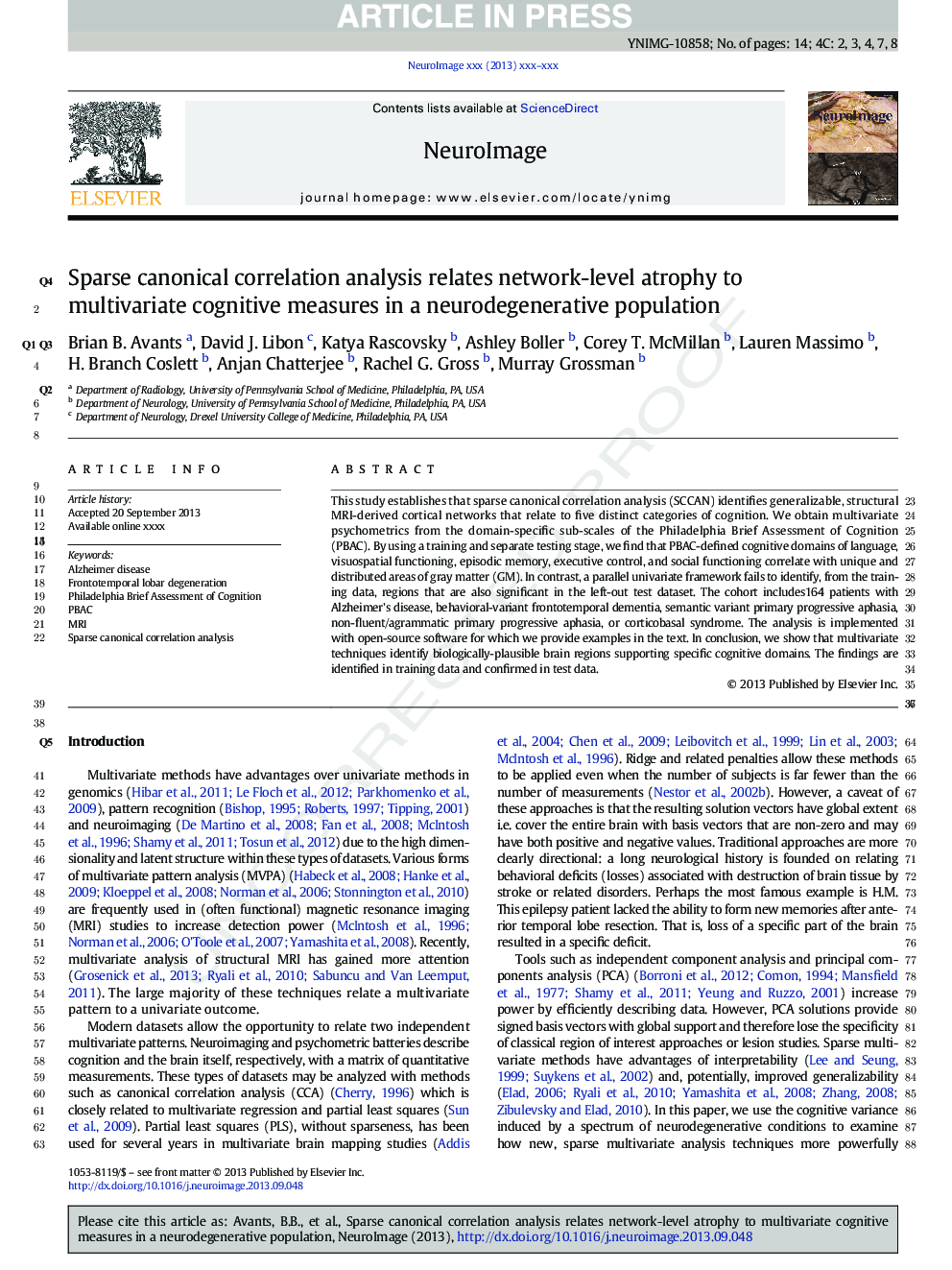| Article ID | Journal | Published Year | Pages | File Type |
|---|---|---|---|---|
| 6028573 | NeuroImage | 2014 | 14 Pages |
Abstract
This study establishes that sparse canonical correlation analysis (SCCAN) identifies generalizable, structural MRI-derived cortical networks that relate to five distinct categories of cognition. We obtain multivariate psychometrics from the domain-specific sub-scales of the Philadelphia Brief Assessment of Cognition (PBAC). By using a training and separate testing stage, we find that PBAC-defined cognitive domains of language, visuospatial functioning, episodic memory, executive control, and social functioning correlate with unique and distributed areas of gray matter (GM). In contrast, a parallel univariate framework fails to identify, from the training data, regions that are also significant in the left-out test dataset. The cohort includes164 patients with Alzheimer's disease, behavioral-variant frontotemporal dementia, semantic variant primary progressive aphasia, non-fluent/agrammatic primary progressive aphasia, or corticobasal syndrome. The analysis is implemented with open-source software for which we provide examples in the text. In conclusion, we show that multivariate techniques identify biologically-plausible brain regions supporting specific cognitive domains. The findings are identified in training data and confirmed in test data.
Related Topics
Life Sciences
Neuroscience
Cognitive Neuroscience
Authors
Brian B. Avants, David J. Libon, Katya Rascovsky, Ashley Boller, Corey T. McMillan, Lauren Massimo, H. Branch Coslett, Anjan Chatterjee, Rachel G. Gross, Murray Grossman,
